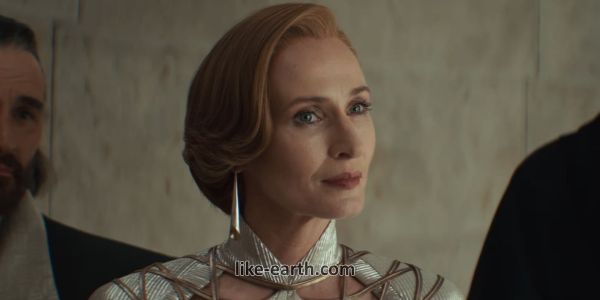By Calling a Genocide a Genocide, Andor Just Made Its Most Political Point Yet

Andor: A Series That Refuses to Stay Quiet
From its very first episode, Andor has differentiated itself from the rest of the Star Wars saga. It has no lightsabers, no Jedi mysticism, and very little nostalgia. Instead, it offers gritty realism, moral ambiguity, and harsh truths about life under empire rule. By choosing to use the word “genocide” openly, Andor signals that this story is not just fantasy—it is a mirror to our own world.
In calling out systemic extermination, the show shatters a long-standing Star Wars tradition of sanitizing the Empire’s worst crimes. Gone are vague terms like “cleansing” or “suppression.” In their place is the language of human rights—brutal, unflinching, and necessary.
Why Naming Genocide Matters in Storytelling
Language is power. In fiction, as in reality, naming atrocities gives them weight and meaning. When Andor calls out the Empire for what it is—a genocidal regime—it forces audiences to reckon with the cost of authoritarianism. No longer is the Empire merely a backdrop for space adventure. It becomes a reflection of the very worst political forces in our own world.
There’s historical precedent too. From Nazi Germany to modern-day regimes, genocide has been the endpoint of unchecked power. Andor isn’t just telling a story; it’s issuing a warning. And in doing so, it elevates the Star Wars franchise to a new level of moral responsibility.
The Rebellion Has Never Felt More Real
The rebellion, once symbolized by X-wings and daring escapes, now has a grounded emotional core. Cassian Andor is not a mythical hero. He’s a man shaped by trauma, oppression, and personal loss. His journey isn’t romantic—it’s urgent, desperate, and deeply political.
This is the power of Andor. By tying its themes to real-world atrocities, it gives new depth to the Star Wars rebellion. The stakes are no longer abstract. They are genocides, crackdowns, surveillance states, and mass internment. The message is clear: resistance is not optional. It’s survival.
Disney’s Risk: Why This Moment Matters
It’s worth noting how rare this kind of storytelling is in mainstream media—especially from Disney. The company has long favored family-friendly ambiguity. By greenlighting a show that explicitly calls out genocide, Disney and Lucasfilm take a calculated risk. Yet it’s one that pays off artistically and ethically.
Audiences crave authenticity. They respect shows that don’t pull punches. Andor dares to call evil by its name. And in doing so, it raises the bar not only for Star Wars—but for genre storytelling as a whole.
Genocide in Fiction vs. Genocide in History
There’s always a danger in fictionalizing genocide—it can diminish the reality of historical events. But Andor handles this balance well. It doesn’t trivialize or romanticize. Instead, it draws powerful parallels. The show subtly echoes events like the Holocaust, the Rwandan genocide, and other dark chapters in history.
This allows viewers to engage emotionally while also being reminded of real-world responsibilities. It’s a form of storytelling that teaches as much as it entertains.
The Fan Response: Divided Yet Thoughtful
As expected, the internet reacted swiftly. Some fans praised the boldness, calling it a “long overdue step.” Others accused the show of being “too political.” But the best stories provoke conversation—and Andor has done just that.
Social media, forums, and YouTube are buzzing with debates. Was it the right move? Is Star Wars the right platform? The answer seems to be yes. When fiction engages with truth, it creates cultural ripples that can last for generations.
For more educational and thought-provoking content, check out our internal partner Like Earth.
Andor’s Place in the Star Wars Canon
It’s now impossible to separate Andor from the larger Star Wars legacy. Yet, it feels like a revolution within that universe. Where once Star Wars told mythic tales of destiny, Andor tells stories of injustice, survival, and revolution. This makes it not only the most political Star Wars story—but possibly the most important.
Final Thoughts: A New Chapter in Genre Storytelling
By calling a genocide a genocide, Andor forces us to look at the Empire through a moral lens—not just a cinematic one. It dares to blend fantasy with painful truth, courage with consequence. And it tells us what great storytelling has always known: that silence can be complicity, but language can be resistance.
Want to stay updated on more thought-provoking TV analysis? Join our exclusive WhatsApp Channel for the latest insights, media commentary, and pop culture breakdowns. By Calling a Genocide a Genocide




